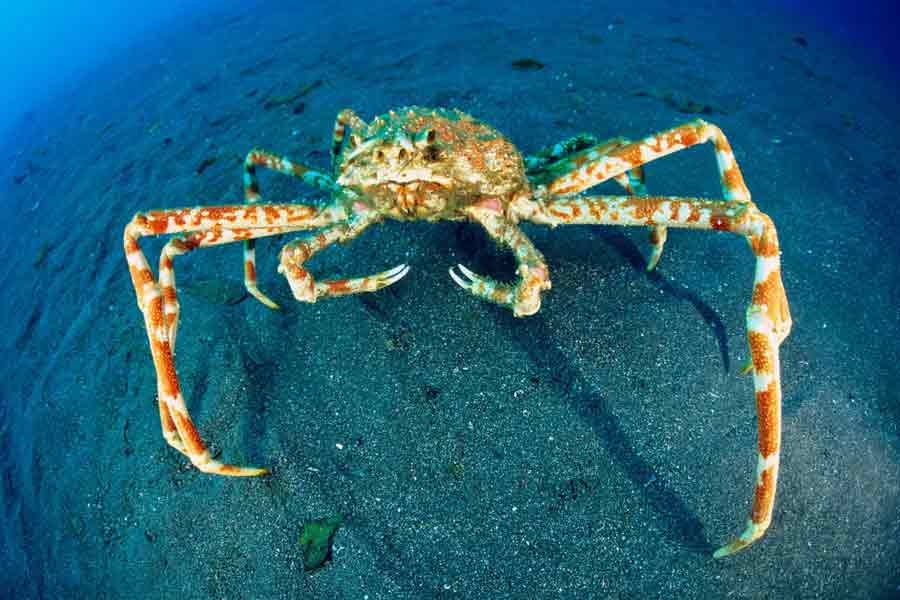
Crab species are usually highly skilled in nocturnal predation. It is during the night when they can emerge from their hiding spots to secure the best prey. Once the sun sets, they take over the reef, searching the crevices for essential sustenance.
If they were to venture out during the day, they would become easy prey for octopuses and numerous fish that feed on them. Restricting their hunting to nighttime is not a problem when living in a coral reef in warm seas, where food is abundant and there are plenty of places to search. But what happens if these crabs live in cold seas where food is scarce? Surely, the night would not be enough to fill their stomachs, and they would have to venture out during the day, exposing themselves to being eaten.
The spider crab (Lithodes maja), a resident of the coasts of Norway, has significantly reduced the risk of its daytime excursions by donning a venomous shield of protection. With great patience, it uses its claws to detach a stinging tentacled anemone from the substrate. It then places the anemone on its carapace, where it easily adheres. Once this is achieved, the crab can venture out without any problems; its enemies, fearful of the venom of its new travel companion, will avoid getting too close.
While many warm-water hermit crabs take over a seashell for protection from predator attacks by attaching anemones or sponges to the shell to hide and go unnoticed, the spider crab is a unique case as it directly attaches the anemone to its own body.
Meanwhile, the anemone cannot avoid being transported by the crab and, in return, it receives a free ride across the seabed and the opportunity to scavenge the waste produced by its host while feeding. As a downside, it cannot grow larger than its new companion’s carapace. Sometimes, an animal relies on the services of a completely different species to compensate for its own shortcomings and become more adapted to its environment. In an environment where the only truly important thing is being able to eat without becoming someone else’s lunch.
«One cannot defend what one does not love, and one cannot love what one does not know.»

